IGH Institute Advisory Board Members – Biographies
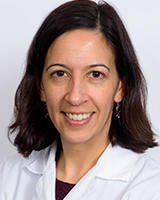
Sofia Ahmed, MD, MMSc, FRCPC (Chair)
Professor, Faculty of Medicine and Dentistry
University of Alberta
Nephrologist
Dr. Sofia Ahmed is a Professor in the Faculty of Medicine and Dentistry and the Academic Lead – Women’s Health Research for the Women and Children’s Health Research Institute at the University of Alberta. Dr. Ahmed is a clinician-scientist with a focus on sex and gender differences in human kidney/cardiovascular outcomes and the University of Alberta Chair in Sex and Gender. She is the Chair of the Canadian Medical Association Journal Governing Council and the President of the Organization for the Study of Sex Differences. Dr. Ahmed completed her MD and internal medicine residency at the University of Toronto and a nephrology fellowship at Brigham and Women’s and Massachusetts General Hospitals in Boston, USA. She completed her Master’s in Medical Sciences at Harvard University. The recipient of the 2022 Hypertension Canada Senior Investigator Award, 2021 Canadian Medical Association May Cohen Award for Women Mentors and 2020 American Society of Nephrology Distinguished Mentor Award, Dr. Ahmed is strong proponent of the importance of mentorship and fostering excellence in the next generation of researchers.
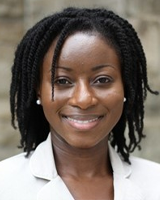
Shamara Baidoobonso, PhD
Provincial Epidemiologist, Prince Edward Island
Adjunct Faculty, Department of Community Health & Epidemiology, Dalhousie University
Dr. Shamara Baidoobonso is the Provincial Epidemiologist for Prince Edward Island where she provides leadership and scientific and strategic direction to the Chief Public Health Office and Department of Health and Wellness on matters related to public health data, public health surveillance, and public health research. She is also Adjunct Faculty in the Department of Community Health & Epidemiology at Dalhousie University. Dr. Baidoobonso uses her broad and deep experience in applying scientific evidence and engaging diverse public voices to mobilize knowledge for disease prevention and health equity. In addition to her work in applied research settings that focus on integrated knowledge mobilization, Dr. Baidoobonso conducts community-engaged research and knowledge mobilization focused on HIV and Black health in the Canadian context. She has advised organizations, institutions, and governments at all levels on matters related to measuring health equity and collecting data about race and other aspects of identity to inform actions to address health equity and monitor progress. Dr. Baidoobonso has received multiple scholarships, awards, and honours in recognition of both her academic and community work, including a Queen Elizabeth II Diamond Jubilee Medal and a King Charles III Coronation Medal.

Brittany Bingham, MPH, PhD
Assistant Professor, Division of Social Medicine, University of British Columbia
Dr. Brittany Bingham, is a proud member of the shíshálh (Sechelt) nation and holds an MPH and PhD in Health Sciences from Simon Fraser University. Brittany is an Assistant Professor in the Division of Social Medicine in the Faculty of Medicine at the University of British Columbia and a Health Research BC Scholar. Brittany leads Indigenous community-driven health research with the primary aim of improving Indigenous experiences in healthcare and informing system transformation. She has worked in various capacities in research with Indigenous communities, healthcare and policy for 20 years. She is passionate about community-driven research, Indigenous health equity & women’s health, implementation science, planetary health, sexual and reproductive health, learning health systems and cultural safety & humility. Brittany is PI of a CIHR grant called the Amplify Study: Elevating the stories of Indigenous women, gender diverse and Two-Spirit peoples and the Founder & Lead of a new Indigenous Health Equity Lab at Women’s Health Research Institute.
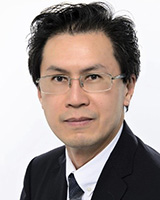
Peter Chan
Professor of Surgery, McGill University
Director of Male Reproductive Medicine, McGill University Health Center
Dr. Peter Chan has been involved in fundamental science research since 1988 at McGill University. He has served as Principal and Co-Principal investigator of CIHR-funded research grants focusing on the bio-psycho- social aspects of a wide range of men’s health topics. In addition to various national and international awards and recognitions he has received for his research, Dr. Chan is also a prominent educator and has served in numerous occasions as Chair, faculty members and speakers in pre- congress courses and symposia of the American Society of Reproductive Medicine and American Urological Association annual congresses. He is a four-time recipient of the prestigious Everett C. Reid Awards for his outstanding contribution in education in Urology at McGill University. He served as a board member of the executive committee of the American Society of Reproductive Medicine and Past President of the Society of Reproductive Surgeons. Recognizing the importance of public health promotion, Dr. Chan founded a public health awareness event called the McGill Men’s Health Day in 2005 and has since served as chief organizer each year. This event is held annually on the week of Father’s Day in various public locations to promote awareness of various men’s health issues to the general public. For his work in promoting men’s health, Dr. Chan received the Outstanding Contribution Award from the Prostate Cancer Network Canada in 2013 and the Award of Generosity from the Cedars Cancer Foundation of Canada in 2018.

Julian Christians, PhD
Professor, Department of Biological Sciences, Simon Fraser University
I arrived at SFU in 2006 following a PhD in Ecological Physiology and postdoctoral work in Quantitative Genetics. My research interests include fetal and placental responses to suboptimal environments, how prenatal environment affects health in adulthood, and the ways in which responses and long-term effects differ between the sexes. While much of this work has focused on sex differences in animal models, more recent work is exploring the potential of using epigenetic markers to assess gendered exposures to distinguish effects of sex and gender in health research. I have also served on the Project Grant Competition Review Panel for CIHR’s Gender Sex and Health committee from 2022 to 2025.

Dr Josephine Etowa, PhD RN RM FWACN FAAN FCAN FCAHS
Professor, School of Nursing, University of Ottawa
Canada Research Chair, Tier 1, Black Women’s Health in Canada
Dr. Josephine Etowa, PhD, RN, RM, FWACN, FAAN, FCAN, FCAHS, is a professor and Canada Research Chair in the School of Nursing at the University of Ottawa. She is a global leader in research and action to reduce health inequities faced by Black communities and transform health systems in Canada and abroad. She is past holder of OHTN Chair in Black Women’s HIV Prevention and care (2020-2024). Dr. Etowa is secretary of the Stephen Lewis Foundation for HIV/AIDs in Africa Board of Directors, and holder of the Loyer-DaSilva Research Chair in Public Health Nursing and founding member and past president of the Health Association of African Canadians.
Dr Etowa’s community-based research program consists of studies on Black women’s health, health equity, perinatal health, COVID-19, HIV/AIDS, nurses’ work life, and community nursing. Her work has contributed to understanding the determinants of health inequities and healthcare access, and innovative solutions to address health inequities along ethno-racial lines, promote healthy behaviours for perinatal health, enhance cultural competence, and improve workforce diversity management influence health policy in Canada and abroad. She has mentored over 100 Black people in community, many of whom now hold influential positions in Canada’s provincial and federal governments. To further community-led action on health, her current research aims to develop best practice guidelines for research, data management, and knowledge mobilization to be genuinely led by Black communities.
Her research studies are guided by intersectionality lens and population health promotion approach. Her anti-Black racism work has resulted in seminal contributions to Canadian health policy and bringing racism to the forefront of dialogues. She created and led African Caribbean and Black community National Expert Working Group to implement a national Black Canadian COVID-19 impact study.

Jennifer Gillivan, ICD
President and CEO, IWK Foundation
Jennifer Gillivan is President and CEO of the IWK Foundation. The Foundation is the primary fundraising and outreach partner of the IWK Health Centre, which provides critical and specialized care to women, children, youth, and families throughout the East Coast of Canada. Prior to joining the IWK Foundation, Jennifer worked with the Canadian Broadcasting Corporation for 14 years. Jennifer is a seasoned executive leader as well as a passionate motivational speaker and contributor to her community and country. She has served in numerous leadership roles including Past Chair of the Board of Director of Canada’s Children’s Hospital Foundations. Jennifer was appointed by the Prime Minister of Canada 2016-2018 to serve as a member of The Independent Advisory Board for Senate Appointments in Nova Scotia and she has served on many national and regional boards over the years. Jennifer has received a number of recognitions for her work including Canada’s “Most Admired CEO in a social profit organization” by Waterstone Human Capital and Top 50 CEO Awards by Atlantic Business Magazine. Jennifer is passionate about her community and her country; she is a fierce advocate for the rights of women and is on a mission to equalize healthcare and research for women around the globe.
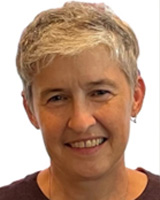
Beth Jackson, PhD
Manager and Senior Science Advisor
Equity Analysis and Policy Research Team
Public Health Agency of Canada
Dr. Beth Jackson (PhD Sociology, York University) was born and raised in Manitoba, situated on the ancestral territories of the Anishinaabeg (Ojibwe/Saulteaux), Nehethowuk (Rocky Cree), Ininiwak (Swampy Cree), Nehiyawak (Plains Cree), Anishininewak (Ojibwe-Cree), Dakota, and Dene peoples; and the homeland of the Red River Métis. She presently lives and works on the ancestral, traditional and unceded territory of the Algonquin Anishinaabeg Nation.
Dr. Jackson has worked in public health and health equity roles for 35 years in community-based, research, and policy settings, focusing on health and social inequities faced by women, First Nations, Inuit and Métis peoples, 2SLGBTQI+ populations, and Black and other racialized populations. Since joining the Public Health Agency of Canada in 2007, she has led multidisciplinary teams to strengthen evidence on social determinants of health, enhance measurement and monitoring of health inequities, and advance equity-driven policy and program initiatives, including the Pan-Canadian Health Inequalities Reporting Initiative (for which she was awarded PHAC's Dr. Andrés Petrasovits Award for Excellence in Public Health in 2017); the Federal 2SLGBTQI+ Action Plan (for which she was nominated for the Agent of Change – Public Service Pride Award (advancing 2SLGBTQI+ inclusion) in 2022); PHAC's Mental Health of Black Canadians initiative (for which she was awarded a PHAC Branch Award for Innovative Policy and Program Development in 2018); PHAC's Anti-Racism in Science Action Plan, and Canada's Action Plan on Combatting Hate. She has also been a Co-Investigator and Knowledge User on multiple CIHR-funded research projects and a Co-Investigator on intramural research programs at PHAC.
She has served numerous advisory roles within and beyond PHAC, most recently representing PHAC on the International Association of National Public Health Institutes (IANPHI) Thematic Committee on Social and Public Health Inequalities.
She is a fervent supporter of mentorship and strengthening the role of social sciences in public health, reviving their historical role in the discipline to address complex public health challenges.

Robert-Paul Juster, PhD
Director, Centre for Studies on Sex and Gender, Allostatsis and Resilience (CESAR Laboratory), Centre de recherche de l'Institut universitaire en santé mentale de Montréal
Associate Professor, Department of Psychiatry and Addiction, Université de Montréal
Dr. Robert-Paul Juster, PhD, is an Associate Research Professor in the Department of Psychiatry and Addiction at the University of Montreal. Dr. Juster leads the Center on Sex*Gender, Allostasis, and Resilience (CESAR) based at the Research Center of the Montreal Mental Health University Institute. Dr. Juster’s research focuses on stress and resilience using a sex and gender lens. Dr. Juster has contributed to the measurement of allostatic load, the ‘wear and tear’ of chronic stress. In much of Dr. Juster’s research, his team aims to better understand how stigma, stress, and strain influence the health of two-spirit, lesbian, gay, bisexual, transgender, intersex, asexual, and queer individuals. His research program has also included studying allostatic load among many other vulnerable groups across lifespan development with a particular focus on using allostatic load as a marker of accelerated aging.
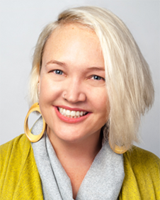
Carmen Logie, PhD
Professor, Factor-Inwentash Faculty of Social Work, University of Toronto
Adjunct Scientist at Women’s College Research Institute at Women’s College Hospital
Canada Research Chair in Global Health Equity & Social Justice with Marginalized Populations
Dr. Carmen Logie, Tier 2 Canada Research Chair in Global Health Equity and Social Justice with Marginalized Populations, is a Full Professor at the Factor-Inwentash Faculty of Social Work, University of Toronto, an Adjunct Professor at the United Nations University Institute for Water, Environment, & Health, and an Adjunct Scientist at Women’s College Hospital. Her community-based research program advances understanding of, and develops interventions to address, intersecting forms of stigma and discrimination associated with HIV and other social and health disparities in Canada, Uganda, Kenya, and Tanzania with people living with HIV, refugee and displaced youth, LGBTQ communities, Indigenous youth, climate-affected youth, and people at the intersection of these identities. She is a Deputy Editor at the Journal of the International AIDS Society and Stigma & Health.

Jeffrey S. Mogil, PhD, FCAHS, FRSC,
Professor, Department of Psychology, McGill University
Dr. Jeffrey S. Mogil, PhD, FCAHS, FRSC, is currently the E.P. Taylor Professor of Pain Studies and a Distinguished James McGill Professor at McGill University. Dr. Mogil has made seminal contributions to the fields of pain genetics, sex differences in pain, and pain testing methods in the laboratory mouse. He has published over 270 manuscripts and book chapters and currently has an h- index of 102. He is the recipient of lifetime achievement awards from the American and Canadian Pain Societies and the Canadian Psychological Association, and is a Fellow of the Canadian Academy of Health Research and the Royal Society of Canada. He has served as Neurobiology Section Editor at the journal, Pain, as a Councilor at the International Association for the Study of Pain, and was the Chair of the Scientific Program Committee of the 13th World Congress on Pain.
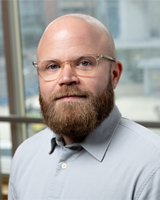
Ayden Scheim, PhD
Senior Scholar of Public Policy, Williams Institute, University of California, Los Angeles School of Law
Dr. Ayden Scheim, PhD, is Senior Scholar of Public Policy at the Williams Institute at the University of California, Los Angeles School of Law. He holds adjunct and visiting faculty positions at Western University, St. Michael’s Hospital, and the University of California, San Francisco. Dr. Scheim received his PhD in Epidemiology and Biostatistics from Western University and completed postdoctoral training in Global Public Health at the University of California, San Diego. Dr. Scheim conducts community-based and methodological research to understand and address the health impacts of intersectional stigma, discrimination, and social exclusion. In particular, his program of research has focused on (1) mental health, sexual health, HIV, and harm reduction in sexual and gender minority populations and people who use drugs and (2) measuring intersectional stigma and discrimination. Dr. Scheim has 20 years of experience in transgender and non-binary health research and practice, and has lead CIHR- and NIH-funded community-based participatory research studies with trans populations in Canada and India. He has participated in trans health clinical and research guideline development processes for the World Health Organization, the World Professional Association for Transgender Health, and the National Institutes of Health.

Ashlyn Swift-Gallant, PhD
Associate Professor, Department of Psychology
Memorial University of Newfoundland and Labrador
Dr. Ashlyn Swift-Gallant, PhD, is an Associate Professor in the Department of Psychology at Memorial University of Newfoundland and Labrador (MUNL). Dr. Swift-Gallant earned her PhD from the University of Toronto and completed a postdoctoral fellowship at Michigan State University. Her research investigates how the processes of sex development shape the brain and influence behavioural outcomes, often differentially predisposing individuals to brain-related conditions depending on life stage. Her primary research focus aims to delineate the contributions of sex chromosomes and gonadal hormones in mediating risk of neurodevelopmental disorders. She also collaborates on projects aimed at understanding the sex & gender biases in mental health conditions, using both preclinical investigations in rodents and epidemiological studies in human populations. Dr. Swift-Gallant is actively involved with the Organization for the Study of Sex Differences, having served as an Elected Councillor and co-Chair of the Awards Committee. Throughout her career, Dr. Swift-Gallant has received numerous accolades for her innovative research and mentorship, including the Faculty of Science Distinguished Emerging Scholar Award in 2024 and the School of Graduate Studies RockStar Supervisor Award in 2023 from MUNL, and the W.C. Young Investigator Award from the Society for Behavioural Neuroendocrinology in 2018.
- Date modified: